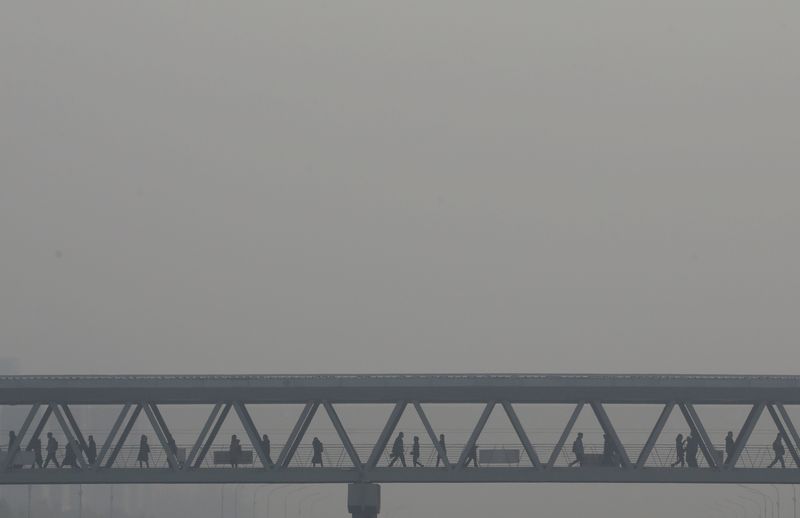By Simon Jessop
(Reuters) - The carbon emissions reduction targets of a group of the biggest listed companies are too weak collectively, meaning they are failing to play their part in preventing the most devastating impacts of global warming, a report on Tuesday showed.
A study of 51 companies by the non-profit NewClimate Institute and Carbon Market Watch found they had committed to reducing their emissions by 30% by 2030, on average, against the 43% needed to limit global warming to 1.5 degrees Celsius (2.7 Fahrenheit) by 2050.
Although 19 firms had improved their targets over the last two years, those of many were described as ambiguous, and were tied to only part of their business or relied on offsets instead of cutting emissions, leading to effective targets of 5%-20%, the report found.
Among the best performers were food company Mars, retailer H&M Group, and energy groups Enel (BIT:ENEI) and Iberdrola (BME:IBE), which had committed to reducing their emissions by between 50% and 64%, the report said.
"Four years into the critical decade for action on climate change, some companies have understood the need to set 2030 targets that are aligned with the latest climate science and substantiated by credible measures to achieve them," NewClimate Institute's Frederic Hans said.
"However, there still is a concerning lack of commitment and urgency from too many companies to undertake credible climate action."
Scientists consider emissions need to be roughly cut in half by the end of decade if the world wants to reach a mid-century goal of net zero greenhouse emissions. Last year emissions and average temperatures both hit a record high.
Governments' pledges - dubbed Nationally Determined Contributions - so far leave the planet facing warming of 2.5-2.9C above pre-industrial levels, raising the prospect of devastating floods, droughts and wildfires.
Monday's report is the third iteration of the NGOs' Corporate Climate Responsibility Monitor, which focuses on the biggest companies by revenue in climate-crucial sectors.

Benja Faecks from Carbon Market Watch said it showed the need for more effective climate regulation.
"Civil society, investors, and governments depend on transparent and credible rules to distinguish well-substantiated transition plans from those that remain inadequate and prone to greenwashing," Faecks said.